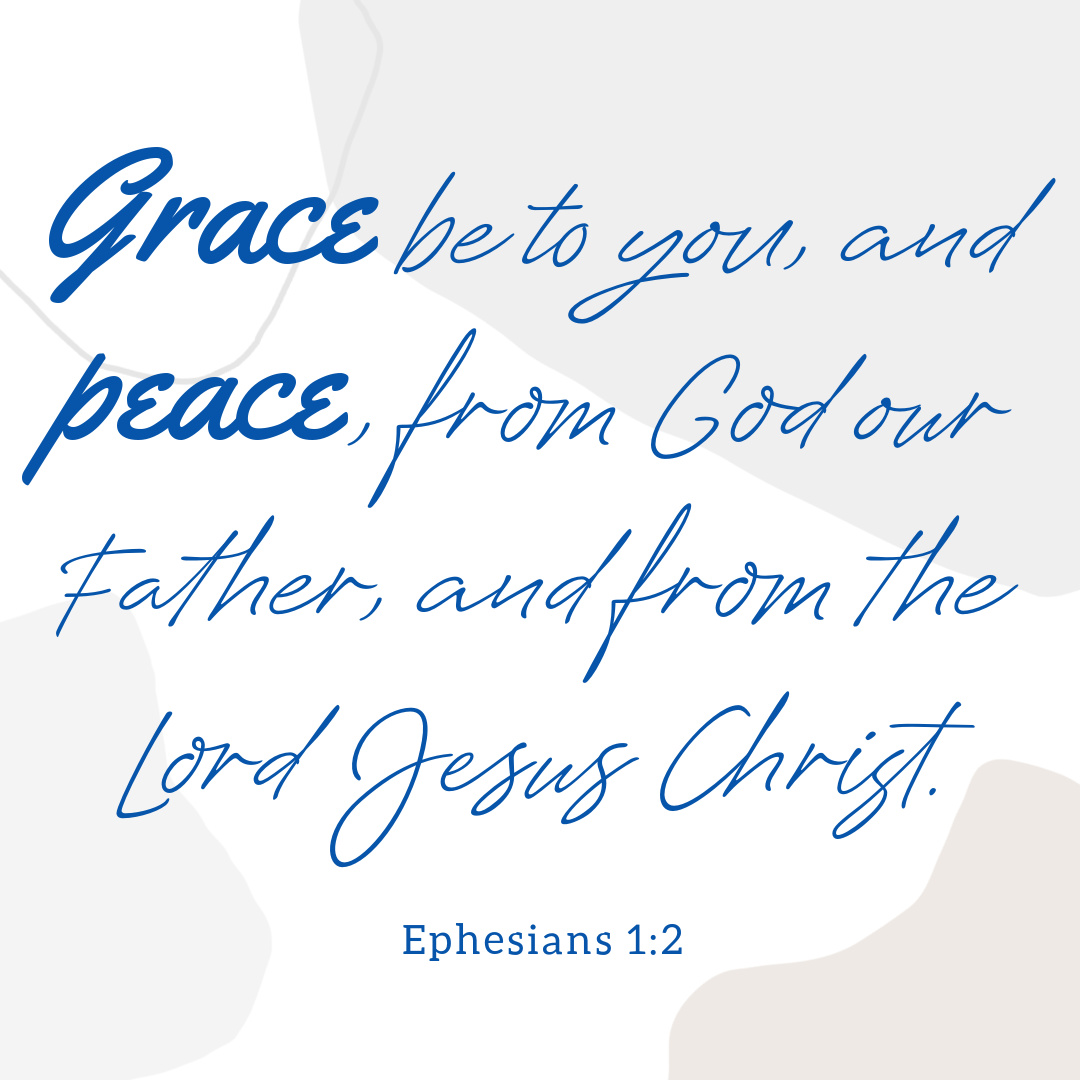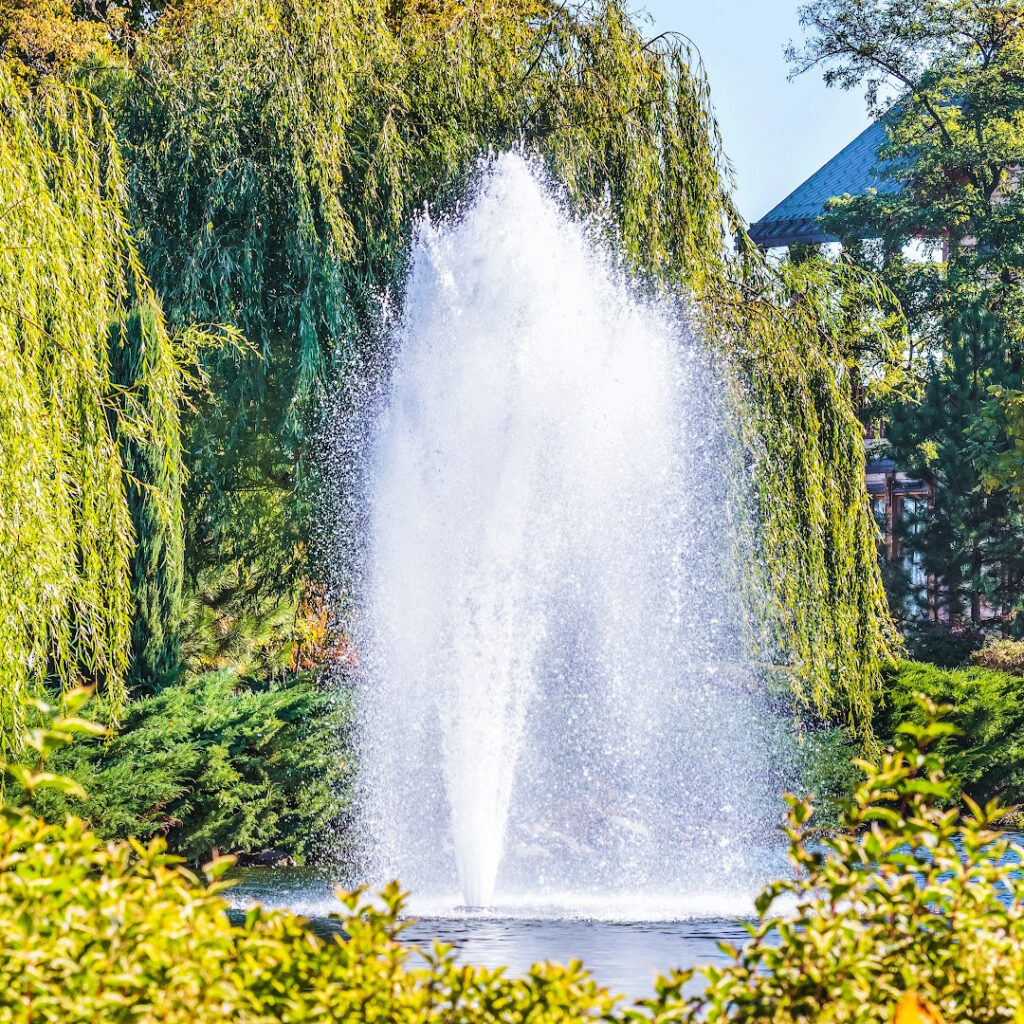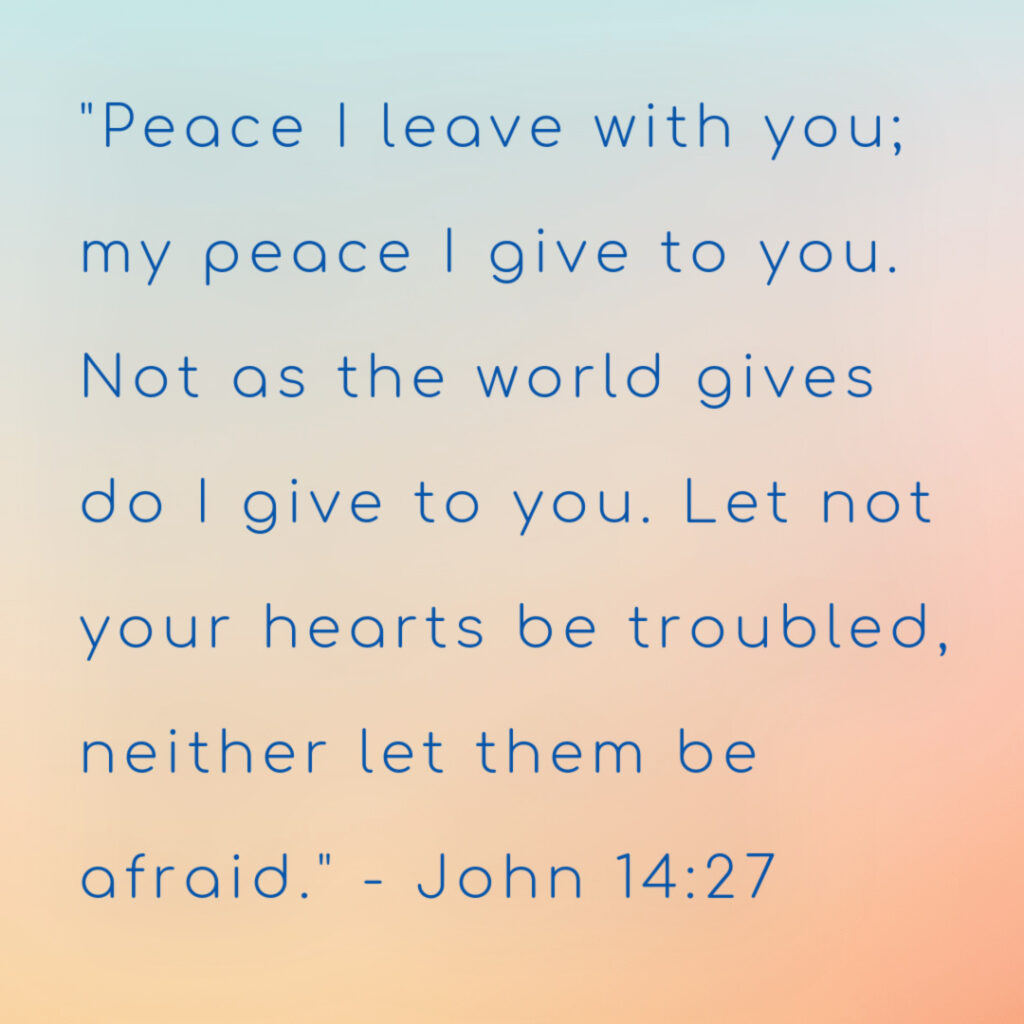The pastor at our new church recently began a year-long teaching series on the book of Ephesians. I love this expository preaching style that takes the focus away from the topic of the day and puts our attention squarely on Scripture. And the book of Ephesians is one of my favorites, so I’m happy to camp out there for the forseeable future.
I promise that this blog won’t also become a year-long deep dive into the book of Ephesians, but the epistle and our corresponding sermon topics will inevitably make their way into my writing, and I was too excited about our introductory sermon (on the book’s opening verses) to keep it to myself.

The book of Ephesians begins with the greeting “grace and peace,” which is a common apostolic salutation found in Paul’s letters. “Grace” refers to the unmerited favor and love of God, a central theme in all of Scripture that emphasizes our salvation as a totally undeserved gift of God. “Peace” signifies reconciliation between God and humanity, as well as the inner tranquility that believers should experience as a result of our awareness that we have been saved by God and that our lives (both on this earth and for eternity) rest in His capable hands. Together, “grace and peace” is a double portion of blessings that reflects the Hebrew concept of “Shalom” (peace) and the Greek concept of “Charis” (grace); as followers of Jesus, both Jews and Gentiles are recipients of these gifts and should live into their reality in our lives.
Grace is often associated with the restoration of our relationship with God at conversion, and it is that. It’s also so much more than the one-time gift given at salvation. We experience God’s grace—His unmerited favor—on a daily and even hourly basis. God’s grace is seen in the repeated forgiveness of our sins, and also in the blazing pinks and oranges of a sunset and the toothless grin of a newborn and that hard conversation that went off without a hitch. All are gifts from above, all undeserved. And peace is a natural response to receiving these gifts: having witnessed the power and goodness of our Father, our anxieties and fears and overwhelm melt away. Our pastor explained it this way: grace is the fountain, and peace is the stream that flows from it. The gifts are intrinsically intertwined; we can’t have one without the other.

I recently made a new friend who positively exudes joy and peace. In one of our first conversations, my friend was excited to tell me that she was not raised in church and only became a follower of Jesus in the last few years. Her face glowed when she told me about her first Easter as a Christian, when she finally understood that the holiday was about more than the death of a man, but the resurrection of the Messiah—a resurrection that paved the way for her own salvation. My friend’s life prior to meeting Jesus was not an easy one, and because of her past, she’s more aware than most of us of the enormity and beauty of God’s grace. Her personal fountain of grace overflows with a rushing stream of peace.
My personal testimony is not as dramatic as that of my friend. I DID grow up in church, and have never known a day without Jesus as the focal point of my life. I am grateful for my story, but because faith has always been a part of my life, I can become numb to the enormity of God’s grace and its implications for me. Having never known the dryness of a life without Christ, I take the thirst-quenching gift of grace for granted. And when I ignore the gift of God’s grace, I also forfeit the fullness of God’s accompanying gift of peace.

What would it look like to recognize, embrace, and celebrate these double gifts in my life? I think it would look like less anxiety about my bank account or my aging body or the state of the world or the lives of my kids. Accepting and exuding peace would mean less overwhelm about my never-ending to-do list. A life of peace would find me courageously sharing my faith with non-believers, unafraid of their reactions. Embodying the gift of peace would mean reconciled relationships and a lack of anger or indignation at the actions of others. It would lead to a silencing of my mean-spirited inner critic as joy and gratitude edged out insecurity. Embracing peace would look like deep, soul-level satisfaction in this present life, and confident assurance and excitement about the life to come. Genuinely welcoming the gifts of grace and peace would look like an enticing fountain that, once experienced, I would never want to leave.
Father God, you say in your Word that you and your son have given me the gifts of grace and peace. There is nothing I can do to deserve these gifts that are freely given. Please help me to accept them with an open heart. Give me eyes to see my personal well of overflowing grace, and may a life of peace be my natural response. Thank you for being such a good God who gives the most precious gifts.